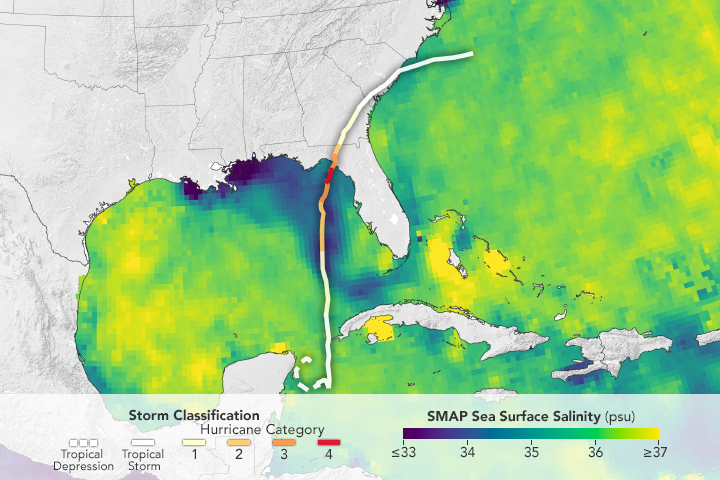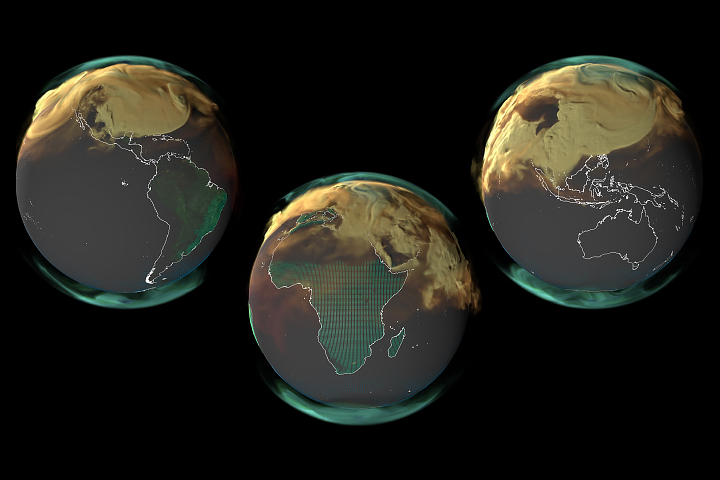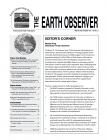



Recent Imagery
You will be directed to the NASA Visible Earth webpage when you select Images by Mission below, or click on the images at right that are randomly generated to represent four out of all possible topics.
The Earth Observer has a new look! Visit the NEW Earth Observer website.
The Earth Observer: Mar - Apr, 2000
In This Issue
Click title below to view page
- Editor's CornerFront Cover
- Science Team Meetings
- Minutes of the Sixteenth Earth Observing System (EOS) Investigators Working Group (IWG) Meeting3
- Clouds and the Earth’s Radiant Energy System (CERES) Science Team Meeting12
- Earth Science Enterprise (ESE) Data Pricing Policy to be Implemented within Earth Observing System Data and Information System (EOSDIS)16
- The 2nd International Workshop on Multiangular Measurements and Models (IWMMM-2)21
- Science Articles
- NASA Developing Space-Based “Sensor Web” — An “Internet” For Earth Observing Satellites11
- Scientific Data Purchase Project: Background Information and Current Status17
- Radiometric Measurement Comparisons at NASA’s Ames Research Center25
- Announcements
- Free Training Offered by NASA’s Earth Science Data Information System19
- Two Earth Scientists Receive the Presidential Early Career Awards for Scientists and Engineers20
- Terra Spacecraft Open For Business24
- EOS Scientists in the News31
- NASA Earth Science Enterprise Education Program Update32
- Calendars35
- Information/InquiriesBack cover
Editor's Corner
Michael King, EOS Senior Project Scientist
On March 31, Dr. Ghassem Asrar, NASA Associate Administrator for Earth Sciences, announced the selection of winning proposals for the University Earth System Science (UnESS) program. Of the twenty-four proposals submitted, NASA’s Office of Earth Science will fund four innovative Earth system science investigation concepts for future development as complete spaceflight missions or secondary payload instruments. Under the terms of the competition, these UnESS proposals are funded at approximately $300 K each for a period of nine months, after which point two primary missions and one back-up will be selected for final implementation. The two primary missions will be funded at $15 M each. This program is aimed at fostering the development of the next generation of Earth system scientists, engineers, managers, and educators through hands-on student involvement in global Earth observations from the vantage point of space.
The four concepts chosen for further development are...
Read more...

